Author Lulu Wood on her latest book, the media and women supporting women
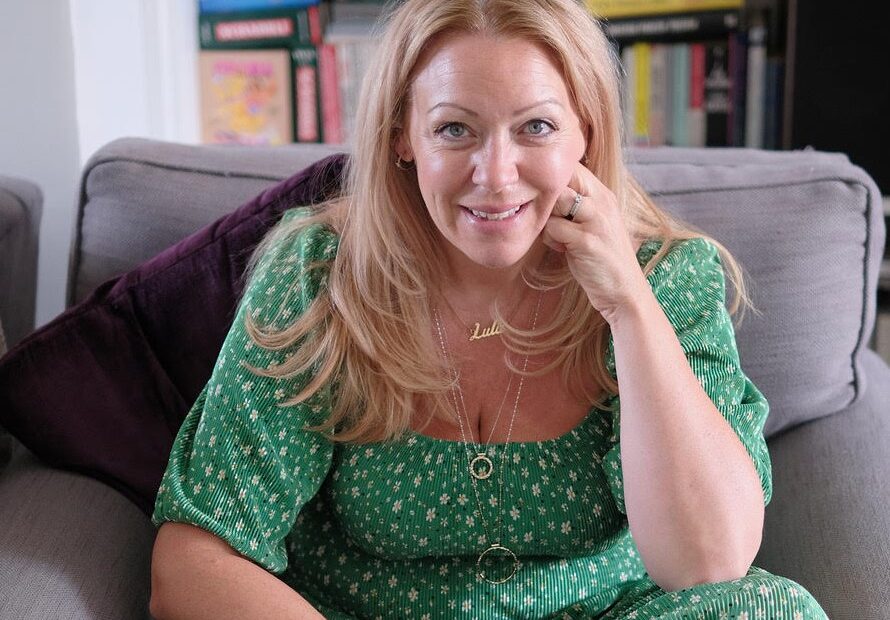
Last month, YouTuber NotCorry released a video essay entitled You Don’t Hate Taylor Swift, You’re Just Sexist (Probably). In it, he addresses the well publicised “feuds” that Swift supposedly had over the years with other celebrities.
Highlighting that fact that these were all very minor misunderstandings, he states “because it involved two women, the media kind of blew it up and said ‘This is the biggest thing that’s happening right now, Nicki Minaj hates Taylor Swift because…’ women can’t be friends, I guess.”
With that statement he hits on an interesting point: the media loves pitting women against each other. This observation has not been lost on British author Lulu Wood. “Every newspaper article, every TV show – it’s catfights and women versus women; seeing other girls as competition and not allies,” she says. “We have literally been taught not to trust other women. Who does that benefit? Because it’s certainly not us”.
Wood wrote her latest book, Milkshakes For The Almost Dead – the first book of the Girls and Monsters Trilogy – as a battlecry for girls and women everywhere. At the heart of the story is 16-year-old Diana and her new friendship with a girl called Gloria, during the worst summer of her life. Diana goes to stay with her aunt Vita, a colourful feminist, who has decorated Diana’s room with empowering quotes. Madeleine Albright’s iconic “There is a special place in hell for women who don’t help other women” is one that stands out to Diana, and this sentiment runs through the entire book.

An established author with four previous titles under her belt, Wood says she has been fortunate to have had the support of women throughout her career. “My first agent was the inimitable Ali Gunn, and she was a force. I signed with her at the age of 25 and she secured me two two-book deals at HarperCollins. My editors at HarperCollins were both very supportive women, but the biggest impact on my sense of self have been the women that shaped who I am. When I met Ken at 22, she was genuinely the first person to help me understand that I could be attractive and fat. Ken believed in me before anybody else did and she was determined I saw that in myself too. Our friendship has changed my life.”
Talking about women who inspire her, Wood also draws from the women in her personal life, “My friend Alice raised her little boy as a single mother and sacrificed a career to do what she had to do.” She looks to women who stand up for what they believe, even if that means they become targets for critique and flat out harassment, so it’s not surprising that Hillary Clinton, Michelle Obama and Meghan Markle come up. So soon after the death of the iconic Ruth Bader Ginsburg, Wood’s words seem especially poignant: “Women who understand this fight isn’t over yet, and who continue to turn up for other women. I want to be one of those.”
Thankfully, the media landscape isn’t all doom and gloom when it comes to the portrayal of women. Wood highlights The Good Wife and The Good Fight for their positive portrayal of older women as intelligent, emotionally complicated, sexual beings. “I continue to love Sex and the City, both for the fashion and the four – admittedly white and super privileged – women supporting each other no matter what, and the message that friendships can be just as important as marriages. Ditto for Broad City, which was hilarious and brilliant.” And while she loved Booksmart for its take on teenage emotional behaviour and friendship, she struggles to think of a book that does the same for female friendships. “There will be some, I’m sure. But publishing does tend to play up the ‘you can’t trust her’ narrative a lot. It’s exhausting!”
She has a clear view of what women can do in their daily lives to be more supportive of each other. “The most important thing is self-reflection. Why are you judging another woman on her size, her age, her face, her voice, her job, her laugh, her sex life, her language? Why are you judging yourself by those criteria? Why don’t you like Hillary Clinton or Meghan Markle? Who is telling you not to trust these women? And who really benefits from it? You need to pull at your own threads first. Clean your own shop. Confront your own expectations of women, including yourself.”
And, of course, not literally buying into narratives about women being pitted against each other. “Stop telling women to hate each other, and stop buying books about women screwing each other over,” which brings us back to Milkshakes For The Almost Dead. The book has an intersectional aspect, which can be a writing challenge. “I think I would feel very uneasy writing a book in the first person narrated by a black character about a subject like race, because I am not black, and that is not my experience.”
Instead, we experience the world of Milkshakes For The Almost Dead through the eyes of Diana, who is white. “I wanted to show her learning and changing as she met new people and had new experiences, and part of that journey was realising her own privilege. For context: Diana lost her mum when she was a toddler. She is a poor girl at an expensive school for rich girls, and has to support her dad’s mental health challenges, while also being viciously bullied. It would be very easy, in those circumstances, to believe you have it bad. She says it at one point, ‘I’m not lucky at all’. Recognising that you can be having an awful life experience but still have privilege – the colour of your skin won’t get you killed, for instance – is something I wanted to show Diana realising through experience.”
It’s her friendship with the confident and beautiful Gloria that changes Diana’s perspective. “It was very important to me that Gloria, the girl who changes Diana’s life, was black. Gloria is the kind of girl Diana would traditionally look at and think she has it all, without acknowledging the completely different lived experience of being British and black. So, in writing Gloria, I did my research, leant on my own experiences, and tried to write the best and most authentic story I could. Then I wrote a group of characters around the girls that reflect society as I see it – black, white, gay, straight, bi.”
The friendship between Gloria and Diana is reflected in the beautiful cover of the book, created by Jem Milton. “It was incredibly important that the book featured both girls on the cover. The inspiration was that these two girls have different lives and different perspectives but they are stronger together. I knew what I wanted and Jem brought it to life beautifully, and will create all of the Girls and Monsters covers.”
Speaking about the next installments in the Girls and Monsters Trilogy, Wood reveals we will discover more about aunt Vita. “She is without a doubt my favourite character to write. She is the woman I wish I was, although we do find some tricky stuff out about her in book two.” When I Dream It’s You I See, coming out in 2021, will be exploring some new issues. “The different ways to amplify your voice and effect change, so persuasion and ’soft power’ versus brute force and physical strength, and also the dilemma between a life of personal happiness at the expense of important social change. What if one means losing the other? Can anyone truly be happy if everyone isn’t? I mean, they are big questions, but I’m going to do what I can.”
For now, her hope is people will enjoy this first venture into the sleepy seaside town of Lattering, and understand what real friendship looks like and how it can change your life. “I want them to understand the power of girls supporting other girls. I want them to understand that just because we’ve been told to trust rich, handsome, posh, white men all our lives, you probably shouldn’t.”
If you’re looking for too close for comfort, scary reading, Lulu Wood’s Milkshakes for the Almost Dead is available on Amazon. A percentage of the sales will support Plan International UK, which works to advance child rights and equality for girls across the world.
Sally Wijers

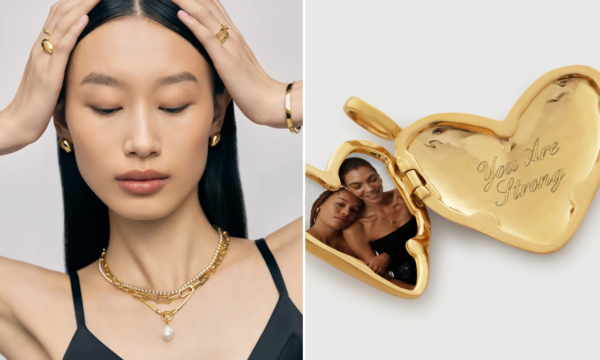
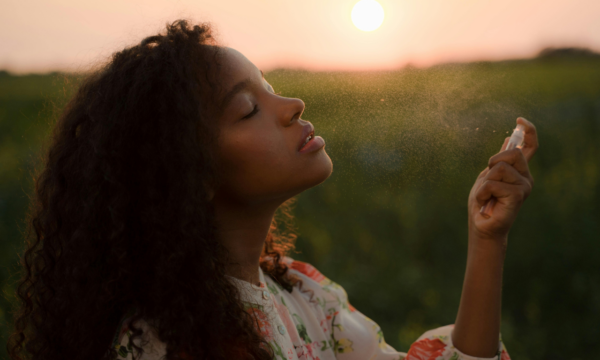



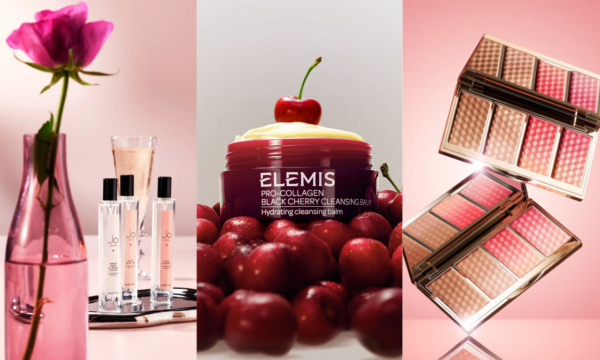

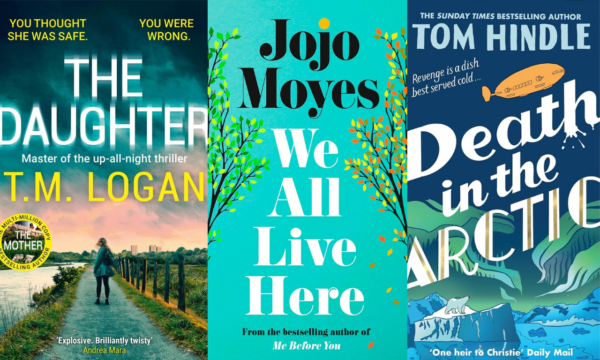










Facebook
Twitter
Instagram
YouTube
RSS